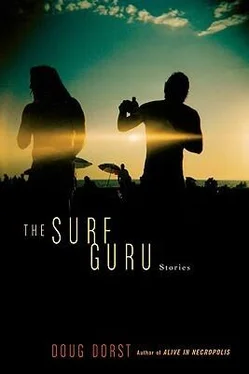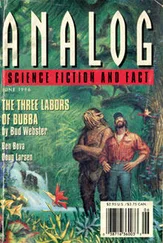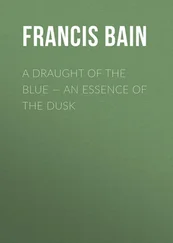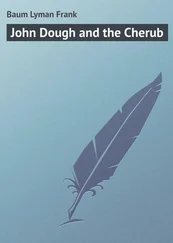
Years ago, when Ysela was a little girl, I explained the Festival to her like this: First we impose justice as the Great Codex demands. After the hanging, we divide into four groups and wait at each of the gates for hyenas to be let in. At the sound of the gun, they run, and we run ahead of them. We act as their guides. We lead them to the dead man, and then we watch with joy from high above.
Why? 2
It is symbolic.
Symbolic?
It is like we are the great saint and the hyenas are us. We lead them to justice, but we do so at great risk to ourselves. And we rejoice when they find it.
Couldn’t they find the dead man themselves? she asked. Couldn’t they smell him?
That is not the point , I said. Someday you will understand.
We are gathered together in front of the west gate, waiting for the signal. Jugs of dragonfruit wine are passed through the crowd. People drink quickly, in equal parts celebration and fear. Someone says the rabid ones are behind the south gate this year. Someone else says no, they are here behind the west gate, Zorrillo himself told him so. There is still no sign of Rubén.
I look down the road toward the square; though the sky has darkened, I believe I can make out the shape of El Gris’s body, swaying slightly at the end of the rope. I can hear the hyenas in their cages outside the gate, snarling, throwing themselves against the bars that confine them. I hear teeth on metal, and I realize that I am very frightened, frightened of the hyenas, of Lars, of the people around me. I am frightened that I will never see my son again, frightened that I will never again be a father to Ysela. I am becoming an old man and I am frightened of myself. The more I have learned, the more frightened I have become. The strength leaks from my tired, bruised legs. I drink a large mouthful from a jug but it does not wash away the fear. “I want to go home,” I tell Vargas. “I am too tired to run.”
A pistol fires from behind the gate. “Too late,” Vargas shouts. He throws the jug aside, grabs my hand, and we run. The gate opens behind us, and I hear the clanks of cage doors and the hyenas’ snarls turning to whoops. The muscles in my legs stretch and burn. I do not look behind me. I keep my eyes forward. My view of the city bounces crazily as my feet pound the earth.
Past the feed store, past the animal doctor’s, past the bakery, a quarter of the way there. Vargas and I have fallen behind the pack, and he pulls me along with him. The air is filled with dust and with the stink of dirty, murderous fur. My breaths are shallow and I feel like vomiting. I hear the hyenas behind me, front legs long, hind legs hort— ka-thup, ka-thup, ka-thup . Powerful jaws snapping. I have heard these sounds every year of my life. I do not want to hear them ever again.
Past the tailor, past the barber, almost halfway. Vargas is nearly dragging me. I am holding him back — fat, panting Vargas. I am so tired. I need to stop and I do not care what is behind me. Then I wonder, Am I no better than Ayala, on his knees and begging to have his neck wrung? Oh, but this is different, so different. It is one thing to seek death; it is another simply to accept the inevitable, to embrace the fate that snaps at your heels. Everyone will be able to see how different it was. And even if they cannot, I know San Humberto will. He will understand.
At the moment I let go of Vargas and try to plant my feet, I feel a prickly heat surge throughout my body. Just as quickly the warmth turns to ice. I think I feel myself dying.
Vargas clamps his soft hand around my arm and pulls, hard. He turns his head, and I can see by his eyes that the hyenas are close, closer than they have ever been to him before. “Run!” he yells, his high voice sharp, commanding. Without thinking I take his hand again, but I do not know how much longer I can run.
Just ahead is my stand. My stand. Where I have sold the fruit for every breakfast, every pie, every jar of jelly in this town for thirty years. In this town where people laugh at Lars’s jokes and forget where their berries come from. In this town where people come to do business with me after doing business with Lars. In this town where men pay to defile my daughter and then haggle with me over the price of figs.
I feel a sharp pain in my side, and I imagine a scene as strange and vivid as one of my nightmares: Lars has shot me, and he is standing on the terrace, lowering his rifle and laughing as that damned monkey blows away the curl of smoke. “I am shot,” I say, without meaning to.
“You have a cramp,” Vargas says. “Breathe!”
Yes. Breathe, Manolo. Breathe. I close my eyes, shutting out the shaking city, and I concentrate on breathing — breathing in everything that is in the air, the good and the bad, the forgiveness and the dust and the stench and the ghosts of the dead, the love and the fear. We pass the stand and now I think about Ysela going there to tell me her good news, Ysela, my daughter who corrected her mother’s stone, my daughter who will be a schoolteacher, my daughter who somehow captured El Gris. The pain still burns my side, but I pass Vargas and now I am pulling him along with me.
And we pass the cobbler’s and the cooper’s and the saddle maker’s stores, and I see in my mind how it happened: El Gris heard about the most beautiful woman in the land and knew he had to see her, so he came to our town — perhaps with his hair tucked under his hat — and found his way to Lars’s bar, and he told Lars he would pay many times the usual rate; he simply had to be with this beautiful Ysela, this angel of whom the whole island speaks. And Lars took the money, of course he took the money, and he sent my daughter off with this criminal, and maybe she was scared at first but she knew what she had to do for everyone else, for the larger good, so she set aside her fear, and she whispered to one of the other girls to run and get the police, and she took El Gris into her room and kept him there — he thought he was taking her, but she was taking him —until the police knocked down the door. Of course Lars claimed credit but that was a lie; it was only Ysela who thought of something more important than money, Ysela, who has changed, repented, who now wants to surround herself with good people and to do good things, who wants to teach children to be moral and thoughtful. And while all of this may be a story I am making up, it is my story and she is my daughter and my legs are pumping and my body is strong and the bar and the cathedral flash past and then from four directions everyone converges in the square and heads for the ladders, and Vargas and I go up the side of the hotel, and we are all safe, away from the beasts below, our chests heaving as we catch our breath.
The hyenas stop dead in front of the gallows, a pulsing mass of brown fur and coiled muscle. They hunch forward and eye the body swinging in the air. We watch them in the fire-light reverently, wordlessly. We will have the rest of the night to celebrate. We will drink and dance and laugh on the roofs all the way until sunrise, when Zorrillo and his riflemen will clear out the hyenas and make it safe to come down. But now, now it is time to watch.
After the first hyena leaps onto the gallows and bites into a leg, the others fall into a frenzy, as if they had all shared the first taste of the dead. They swarm over the gallows, jaws snapping as they jump for their bounty. The body sways and jerks as the hyenas rip meat from bone. They knock each other over the side as they fight for the best pieces. They howl and laugh. We will all hear these sounds in our nightmares, and that, I realize, is one reason we do this.
Читать дальше













